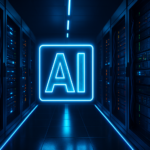Google (NASDAQ:GOOGL) has launched an application, the Google AI Edge Gallery, enabling users to download and execute artificial intelligence models directly on their smartphones. This development represents a significant attempt by Google to make AI accessible at a more personal level. Unlike traditional AI operations that rely heavily on cloud-based processing, this app allows users to perform tasks such as image generation and text editing right from their devices. By eliminating the need for constant internet connectivity, Google is aiming to offer a more private and accessible AI experience.
Previously reported information highlighted Google’s ongoing enhancements to AI, notably through collaborations with platforms like Hugging Face. These efforts aim to democratize AI application by distributing it at the user’s fingertips, independent of external connectivity challenges. This approach contrasts from past strategies where AI was largely centralized, requiring constant server interaction, marking a shift towards individual-centric technology solutions.
What is Google AI Edge Gallery?
The Google AI Edge Gallery serves as a repository for various AI models hosted on the Hugging Face platform. Users can easily search, download, and run AI models that suit their unique needs. From generating art to aiding in coding tasks, these models are optimized for use even without an internet connection, leveraging the processing capabilities of modern smartphones. Such offline functionality addresses privacy concerns, reducing the risk associated with transmitting sensitive data externally.
How Does Device Performance Impact Usage?
The performance of AI models on devices can greatly vary based on the smartphone’s hardware. Google emphasizes that newer devices with more advanced processors will show better performance characteristics, particularly when handling larger AI models. As larger models demand more processing power and time, users on older or less powerful devices may experience slower operations, influencing their overall experience with the app’s capabilities.
Feedback from users who prioritize privacy over raw computational capacity indicates a preference for local model execution. This approach ensures personal data stays on the device, thus providing a safer environment for sensitive or confidential information. Additionally, it allows users in areas with unreliable internet access to continue using advanced AI applications seamlessly.
In related developments, Google is causing ripples in the field of search engine optimization through AI advancements. According to David Hunter, CEO of Local Falcon, Google’s use of AI to analyze user queries has changed the landscape of search engine results, moving from keyword-stuffing techniques to context-based understanding. This shift demands an emphasis on the quality and relevance of content, prompting brands to adapt by focusing on conversational and informative material.
Overall, Google’s strategic push in AI reflects a broader trend towards decentralization and personalization in technology. By enabling AI on individual devices, Google is not only promoting user autonomy but also setting a precedent for the future of AI technology, emphasizing self-sufficiency and enhanced privacy. This innovation showcases the vast potential of mobile technology in transforming everyday digital interactions.










